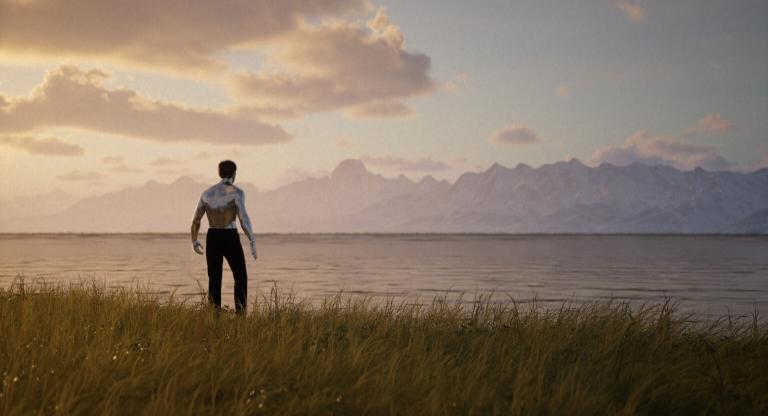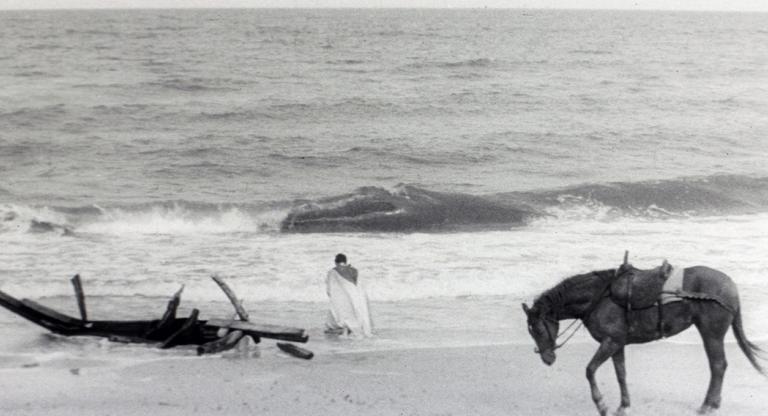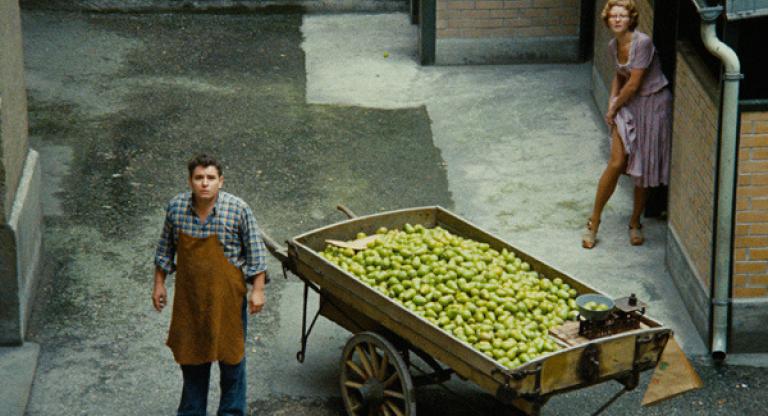One of the most beloved fables of the film movement known as Ukrainian Poetic Cinema is the story of how Sergei Parajanov challenged his cinematographer, Yurii Illienko, to a duel on the set of Shadows of Forgotten Ancestors (1965). They clashed from the start of the shoot, as Illienko fiercely defended his autonomy as a DP, irritating Parajanov to the point that he sent a letter to Dovzhenko Studio demanding to “remove this bastard from the crew.” The duel was to be conducted according to regional traditions—with Hutsul pistols, at a distance of six paces. Miraculously, nature kept Ukrainian cinema alive, as the night before that fateful day the bridge to the duelling site was washed away by a storm. Decades later, the quarrel dissolved into a droll memory when Illienko, already an esteemed director, arrived in Georgia to see an old friend. Fresh out of prison, Parajanov recounted his trauma, saying he was gifting those memories to Illenko. Thus emerged the idea of a film informed by moral humiliation, physical suffering, and the deep psychological imprint of the Soviet era. These elements, both literal and figurative, define Illienko’s Swan Lake. The Zone (1989).
The film’s unnamed protagonist escapes prison just before his sentence is up. Wounded and exhausted, he runs across a desolate field and takes refuge by crawling inside a hulking monument of the Hammer and Sickle. In moments of delirium, he is haunted by visions of white swans that pierce the film’s foggy, gloomy landscape. Then, a woman suddenly appears, bringing an alluring hope of final escape. This symbolic overload is a logical continuation for Illienko’s career, who often turned to the structure of the parable, where locations and visual language displace the spoken dialogue. The Hammer and Sickle, rusty and full of empty liquor bottles, stands in for the Soviet Union as a whole, where millions were forced to live, punished with imprisonment for any attempt to break out of its shell.
Swan Lake. The Zone stands at a crossroads in Ukraine’s national cinematic eras. Its static camera and desaturated chromatic palette anticipate the trademark style of the 1990s, which leaned into realism and existential reflection. Yet its sequences of swans, folkloric inflections, and unquenchable yearning for freedom, also place it within the lineage of Ukrainian Poetic Cinema, which had reached its apogee three decades earlier. Most hauntingly, the mysticism, so emblematic of the wave, here acquires an unnerving prophetic resonance as it relates to the present. Swan Lake. The Zone was partially shot in Donbas, in the very same prison where its screenwriter had been held. 35 years later, the lifelessness of the wounded land and soul now appear as premonitions of the ongoing war in the region—that, with great bravery, continues to fight off every symbol of the hammer and sickle.
Swan Lake. The Zone screens tonight, November 16, at Metrograph on 35mm as part of the series “Soul and Soil: Ukrainian Poetic Cinema.” Dr. Yuri Shevchuk from Columbia University will speak with Pylyp Illienko following the screening.



